How Do You Treat A Dry Scalp And Oily Hair?
Causes, symptoms, and more to look for to get rid of dryness in the scalp.
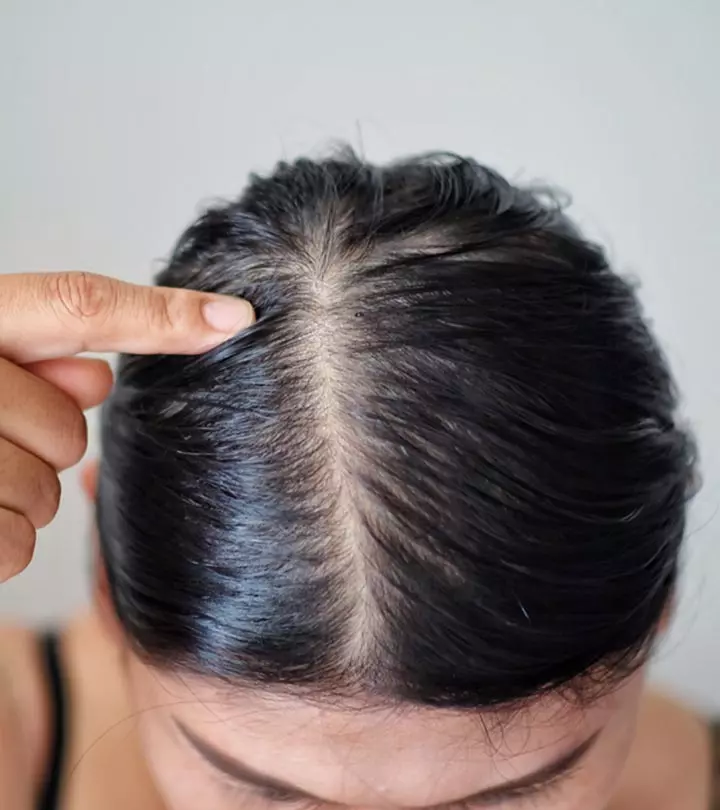
Image: Shutterstock
Dry scalp and oily hair are underrated hair trouble. A combination like this often goes unnoticed when discussing hair problems, and the reason behind them can be elusive. Greasy tresses can be difficult to manage, and when combined with a dry scalp, it becomes even more challenging. If you face a similar issue, don’t worry. We have got you covered. This article explores the reasons for oily hair and dry scalp, symptoms to watch out for, and solutions to this problem. Check it out.
In This Article
Causes Of Dry Scalp And Oily Hair
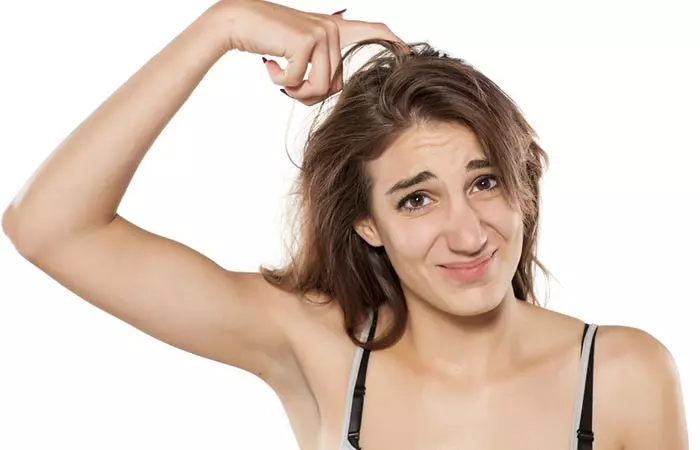
A dry scalp is mainly characterized by itching and flaking (1). It occurs when your scalp is not properly hydrated or due to infection or eczema. Flaky scalp is mainly caused by sebaceous activity (2). The sebaceous glands produce sebum, a complex oil containing triglyceridesi Excess fat that is stored by the body in limited quantities, it can repair the hair surface and help it retain its moisture content. , fatty acid, wax esters, squalene, cholesteryl esters, and cholesterol. When there is less sebum secreted, the scalp becomes undernourished and starts flaking. A reduction in hair sebum production can be caused by quite a few issues like:
- Over-shampooing
- Fungal or bacterial infections
- Weather conditions
- Thermal damage from styling tools
- Hair dyes
- Improper hygiene and health care
On the other hand, oily hair is a sign of the overproduction of sebum. Excess oil production may hinder hair growth by clogging the pores on your scalp. An excessively oily scalp can also have greasy flakes that stick to the scalp. Hair thinning is commonly associated with excessively oily hair.
A dry scalp paired with oily hair is fairly very common, and it is usually seen in people with straight hair. If you have straight hair, the sebum travels down the length of your hair easily, leaving your scalp dry and your hair too oily. Another suggestion is that there might be too much dirt and product residue buildup in the pores of your scalp. These clogged pores push sebum down the length of your hair, leaving the scalp dry.
Scroll down to check out the symptoms of this type of combination hair.
Key Takeaways
- A dry scalp with greasy hair is usually in people with straight hair.
- Hydrating hair packs with glycerin, aloe vera, rosemary, or avocado can help maintain the natural oil and moisture balance of your hair and scalp.
- Cleansing your hair and scalp regularly is vital to keep your hair follicles clean of dry flakes, dirt, or grime build-up.
Symptoms
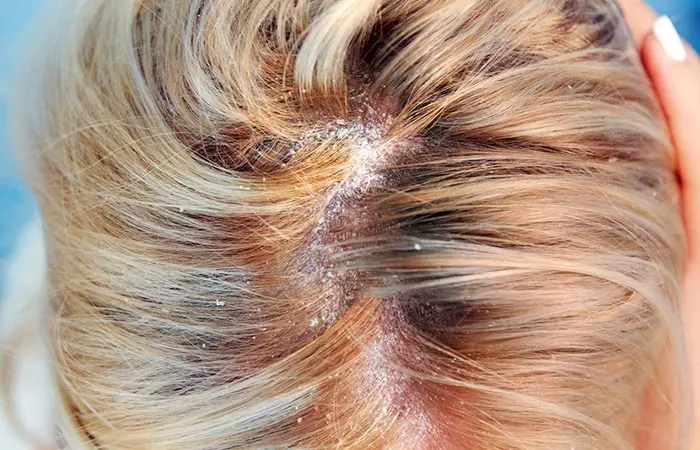
If you have a dry, itchy scalp with oily hair, you may notice the following symptoms:
- You have small white flakes on your scalp.
- Your hair always looks flat.
- You wash your hair every other day due to greasiness.
- You may notice redness or small bumps on the scalp.
- You experience more hair shedding or thinning.
- Your scalp feels tight or unusually dry.
- You are more sensitive to certain products.
These symptoms can be quite bothersome, so you may want to treat them. If you are looking for how to get rid of a dry scalp, check out the next section for some treatment options that you can try!
Treatment
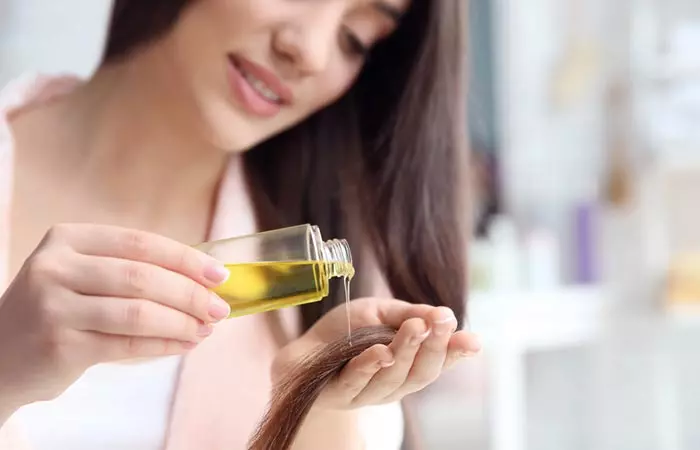
The best treatment for a dry scalp is to moisturize it with deep conditioners, oils, and hair masks.
- Keep your scalp moisturized by oiling it regularly, around least twice a week. You can also warm up the hair oil a bit for better results.
- Use deep conditioning treatments specifically made for the scalp. These treatments will contain concentrated ingredients that nourish and hydrate the scalp.
- You can also try hydrating hair packs and masks that contain ingredients like aloe vera, glycerin, avocado to help in moisturizing the scalp.
Veena, a blogger who has tried yogurt for managing dry scalp and dandruff shared her experience. She says “This is a guaranteed solution to get results in a jiffy. If you are having some skin condition, then this will not work and better consult a doctor for proper treatment (i)”.
To treat oily hair, use refreshing and cleansing products.
- Use hair masks that contain rosemary and other sebum-balancing ingredients.
- You can use dry shampoos to remove excess oil from the hair strands instead of shampooing your hair regularly.
- Instead of washing your hair too often, you can shampoo your hair once or twice a week and co-wash products the other days. Co-washes and conditioning cleansers don’t completely dry out the scalp like regular shampoos might. But they don’t completely cleanse the scalp, which is why you need to use shampoo at least once a week.
 Quick Tip
Quick TipPicking the right shampoo for your hair and a complimentary conditioner also plays a role in treating a dry scalp with oily hair. Learn more in the next section.
Shampoo And Conditioner For A Dry Scalp And Oily Hair
Take the following tips into consideration while buying your shampoos and conditioners:
- You may opt for a gentle, moisturizing shampoo and a lightweight, hydrating conditioner.
- Look for products with ingredients like tea tree oil, aloe vera, or coconut oil that soothe the scalp while maintaining moisture balance.
- Avoid shampoos with harsh sulfates and opt for those labeled “for dry scalp” or “hydrating“. Avoid heavy or greasy formulations when picking conditioners.
- Use the shampoo primarily on the scalp and hair roots and the conditioner mainly on the hair ends to prevent excess oil buildup on the scalp.
- It’s essential to strike a balance between nourishing the dry scalp and controlling the oiliness. Hence, experiment with different products and find the right balance to get the best results.
Does having a dry scalp lead to dandruff? Find out in the next section!
Can A Dry Scalp Cause Dandruff
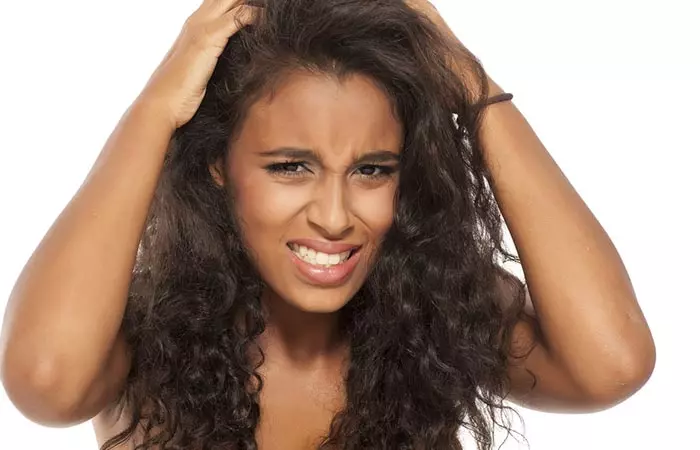
Dry scalp and dandruff are two completely different scalp problems that are commonly mistaken for each other. Dandruff is commonly caused by an oily scalp. The oily scalp allows the fungus Malassezia furfur to grow, which causes dandruff.
A dry scalp normally does not cause dandruff. If you do notice dandruff flakes on your scalp that persists even after treatment, then it might be seborrheic dermatitisi Also known as scalp eczema, it is a common skin condition that causes scaly, inflamed skin and stubborn dandruff on the scalp. or chronic dandruff.
 Fun Fact
Fun FactThere may be cases when too oily hair or an extremely dry scalp might be a sign of some other condition. Scroll down to the next section to find out when to see a doctor.
When Should You See A Doctor?
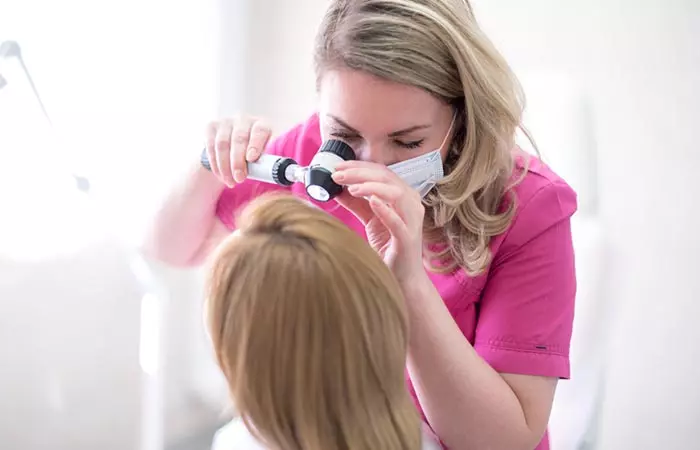
Please consult a doctor if you notice any of the following:
- If the dryness on the scalp is paired with severe redness or inflammation and hair loss.
- If the dryness on the scalp persists even after applying hydrating packs, serums, masks, and deep conditioning treatments.
- Your hair is starting to thin out with excess oil.
- You start experiencing hair loss.
Infographic: Helpful Tips To Treat A Dry Scalp And Oily Hair
Finding a hair care routine that actually works can be challenging if your hair gets greasy quickly but your scalp is dry. Even though it can be irritating to address these two issues at once, establishing the proper moisture balance between your hair and scalp is easier than you might imagine.
Check out the infographic below to learn what you should do to restore harmony to your scalp and hair. Illustration: StyleCraze Design Team
It can be a confusing predicament dealing with a dry scalp and oily hair. On one hand, your scalp is dry and needs moisturization and hydration. But, on the other hand, your hair gets greasy quickly and lays flat. If you wash your hair to remove the grease, your scalp feels too dry. The best way to treat a dry scalp and oily hair is to use hydrating masks on your scalp, massage your scalp with nourishing oils to promote scalp care, and reduce the frequency of your hair washes. You can wash oily hair with natural shampoos that don’t drain your scalp of moisture. You could also use a co-wash and other such products. Keep a hydrating spray handy for your scalp. Whenever your scalp feels dry and itchy, you can spray it on.
Frequently Asked Questions
What vitamin deficiency causes dry scalp?
Deficiencies of vitamins B and D may cause dry scalp issues, leading to hair loss (3).
Why do I still have dandruff after washing my hair?
Dandruff can be caused by a dry scalp, excess sebum, and fungal infections. Washing your hair with regular shampoo may not treat dandruff. You need to use an anti-dandruff shampoo. Washing your hair too often can also increase dandruff.
Why is my hair oily but I still have dandruff?
If you have fine hair (and even in some wavy hair types), the oil from your scalp travels easily to your hair, making your strands oily. But your scalp remains dry, causing flaking.
Illustration: How Do You Treat A Dry Scalp And Oily Hair?
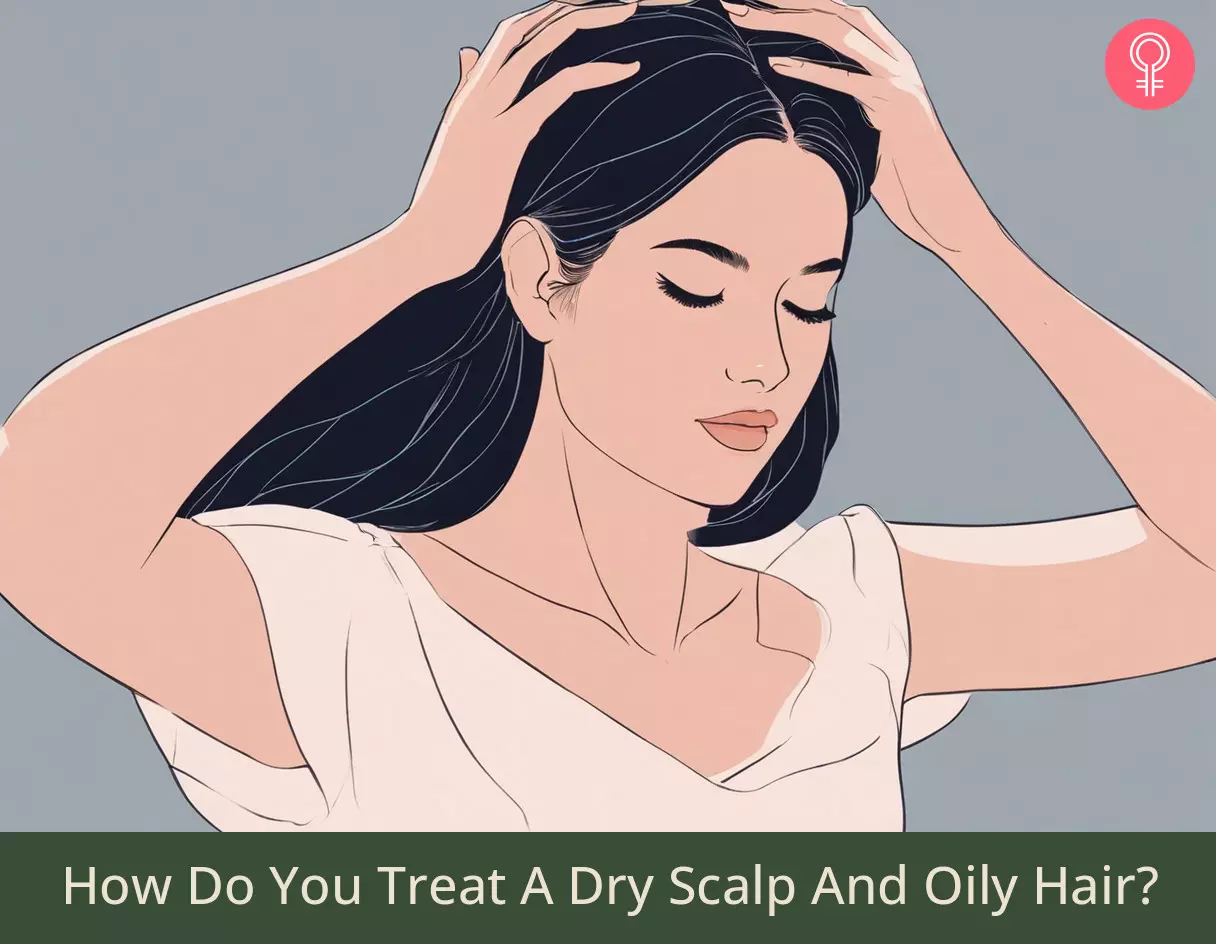
Image: Stable Diffusion/StyleCraze Design Team
Learn how to care for your oily scalp and dry hair with this informative video. Check it out and get tips on keeping your scalp healthy and your hair looking great!
Personal Experience: Source
StyleCraze's articles are interwoven with authentic personal narratives that provide depth and resonance to our content. Below are the sources of the personal accounts referenced in this article.
i. Get rid of Dandruff in an Instant- Home Remedyhttps://veenazkit.wordpress.com/2015/07/21/get-rid-of-dandruff-in-an-instant-home-remedy/
References
Articles on StyleCraze are backed by verified information from peer-reviewed and academic research papers, reputed organizations, research institutions, and medical associations to ensure accuracy and relevance. Read our editorial policy to learn more.
- A Practical Guide to Scalp Disorders
https://www.sciencedirect.com/science/article/pii/S0022202X15526572 - The Role of Sebaceous Gland Activity and Scalp Micro floral Metabolism in the Etiology of Seborrheic Dermatitis and Dandruff
https://www.jidsponline.org/article/S0022-202X(15)52586-4/pdf - The Role of Vitamins and Minerals in Hair Loss: A Review
https://link.springer.com/article/10.1007/s13555-018-0278-6
Read full bio of Dr. Sameeksha Chand
Read full bio of Anjali Sayee
Read full bio of Ramona Sinha
Read full bio of Krati Darak






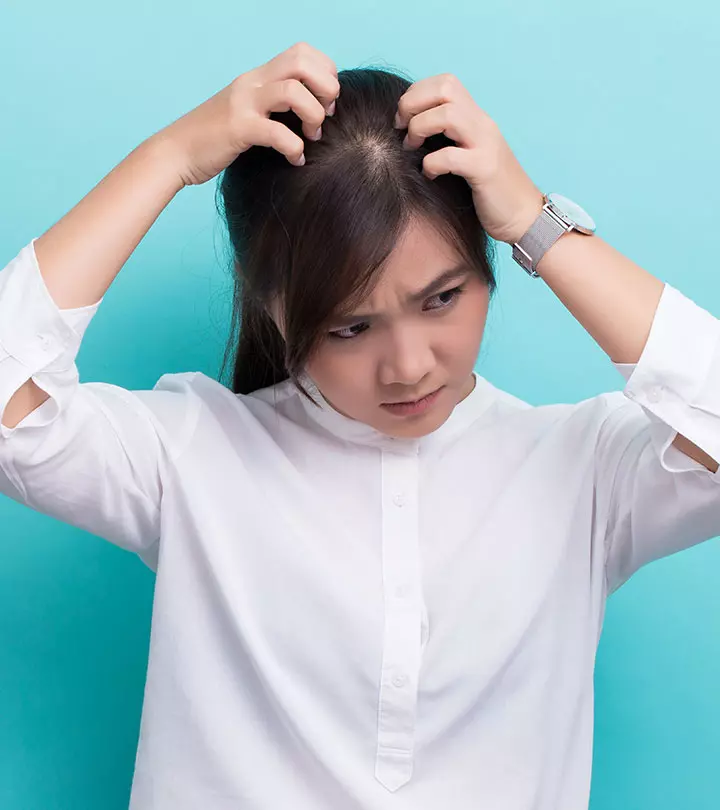
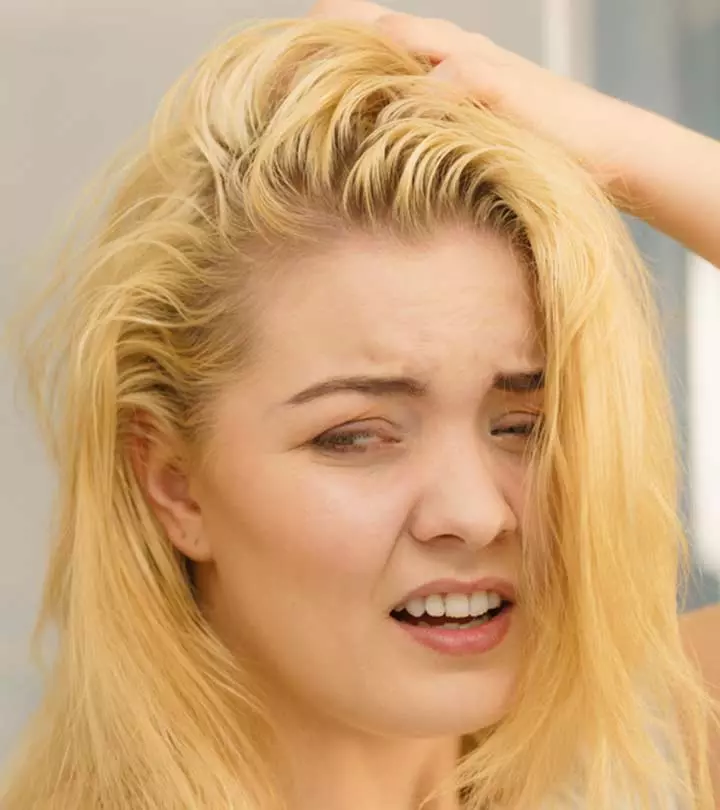
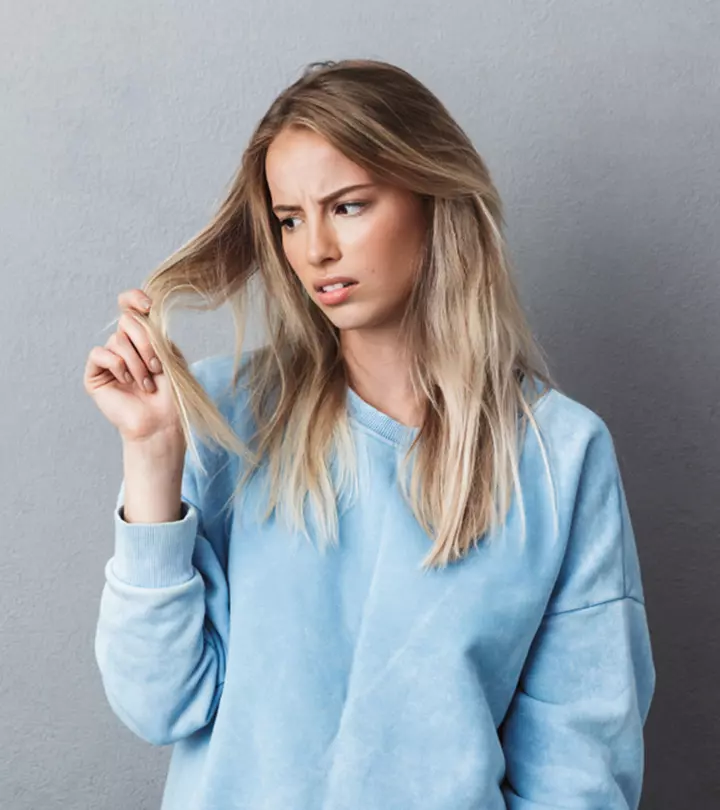
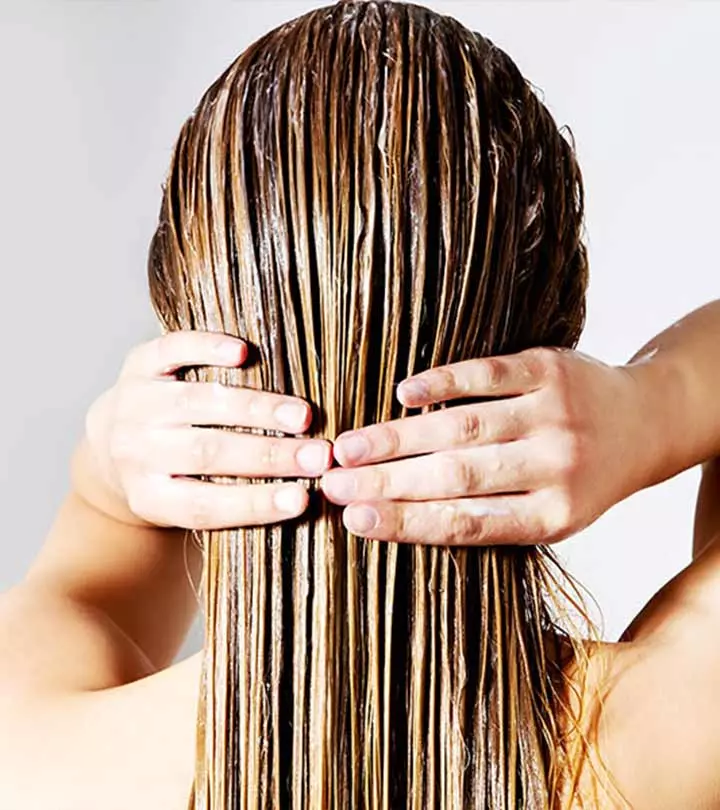
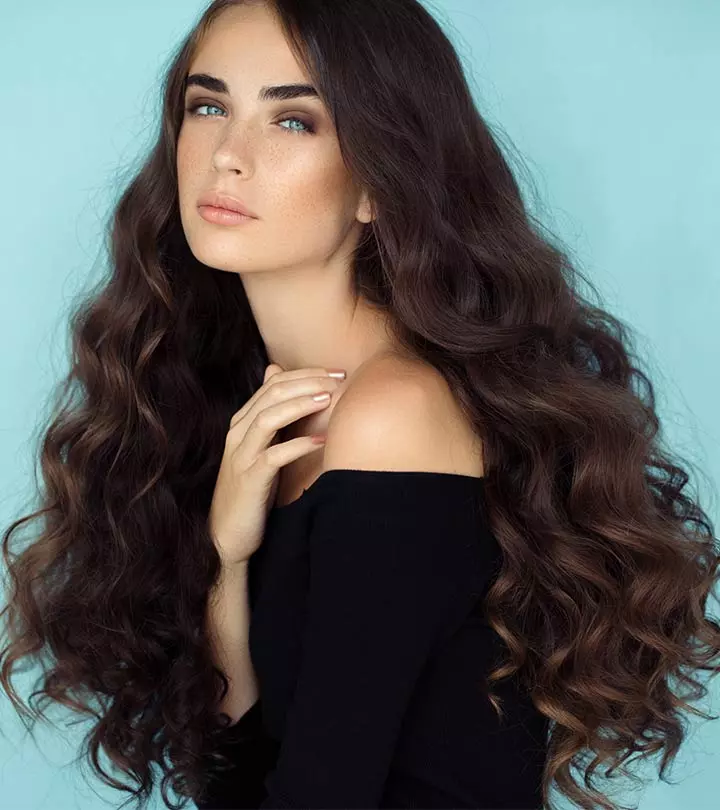
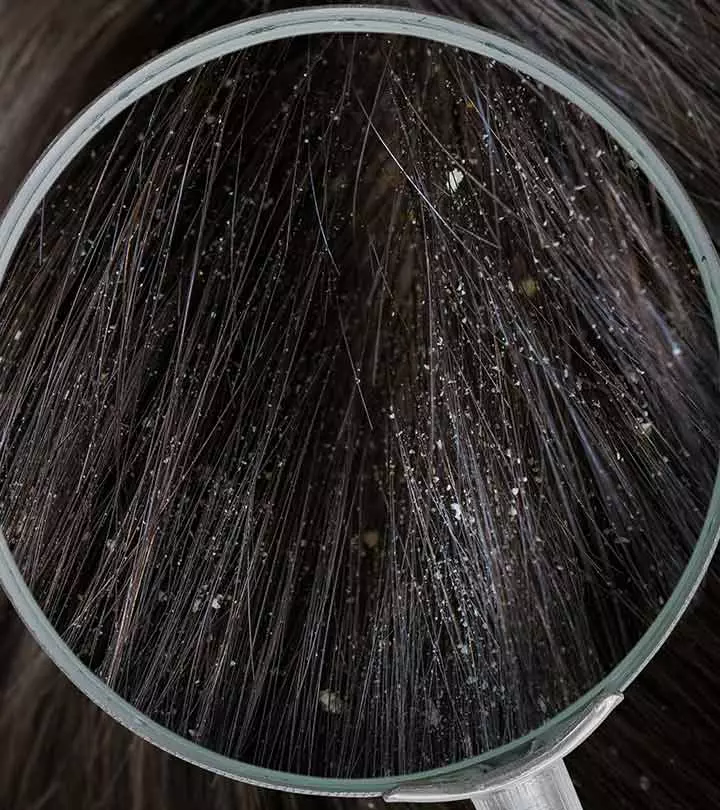


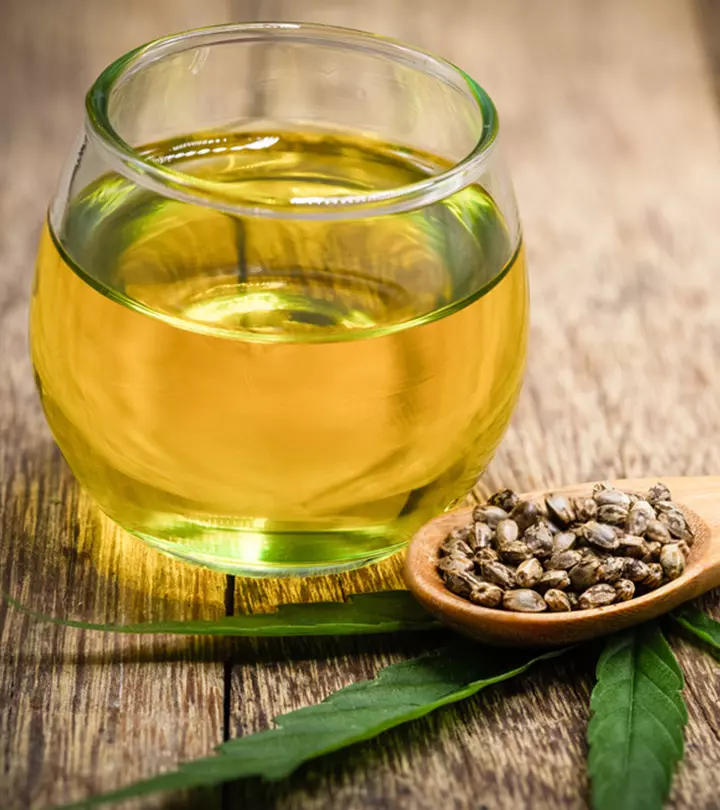
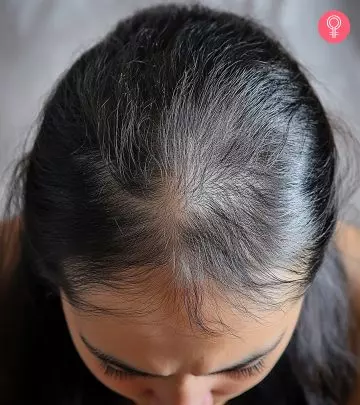
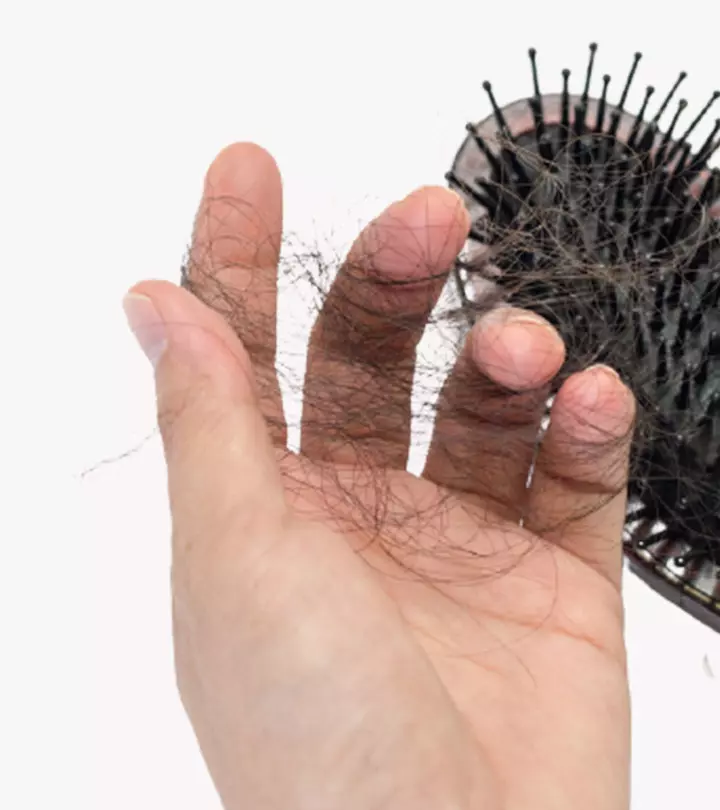
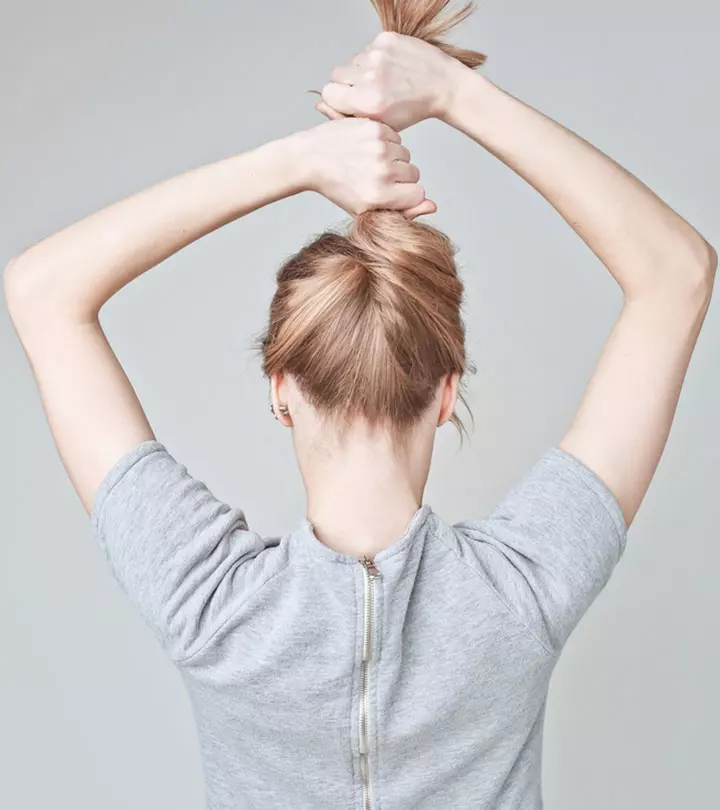
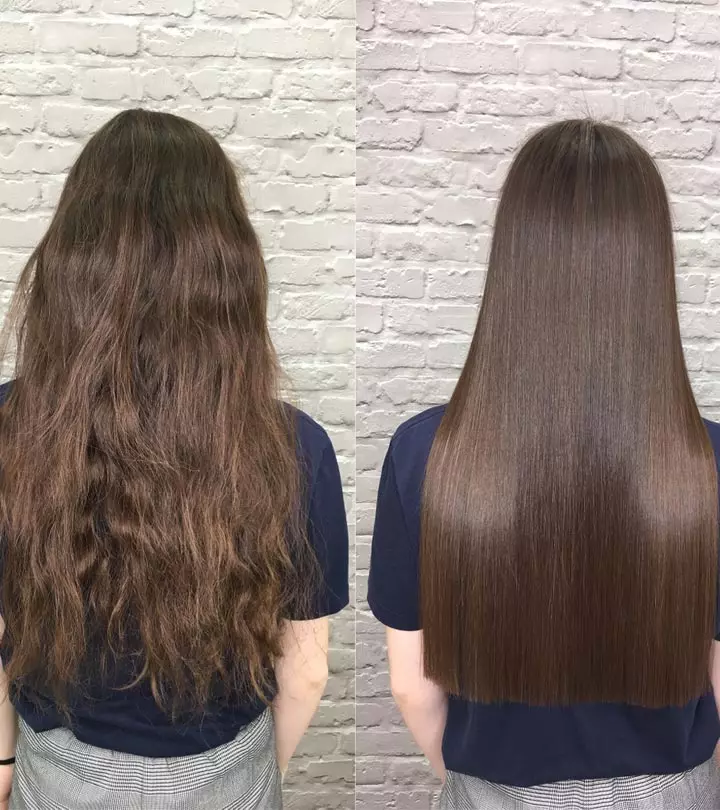
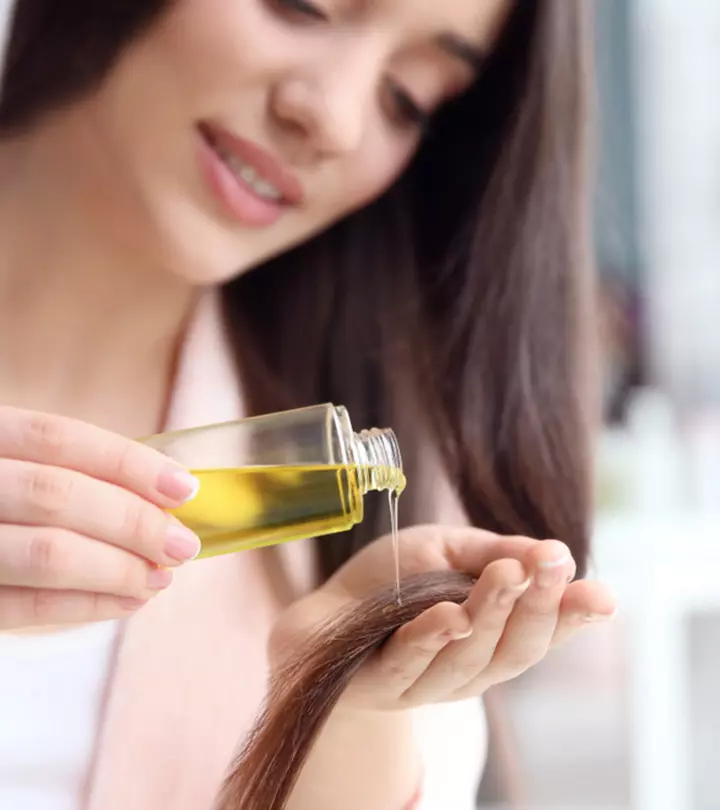
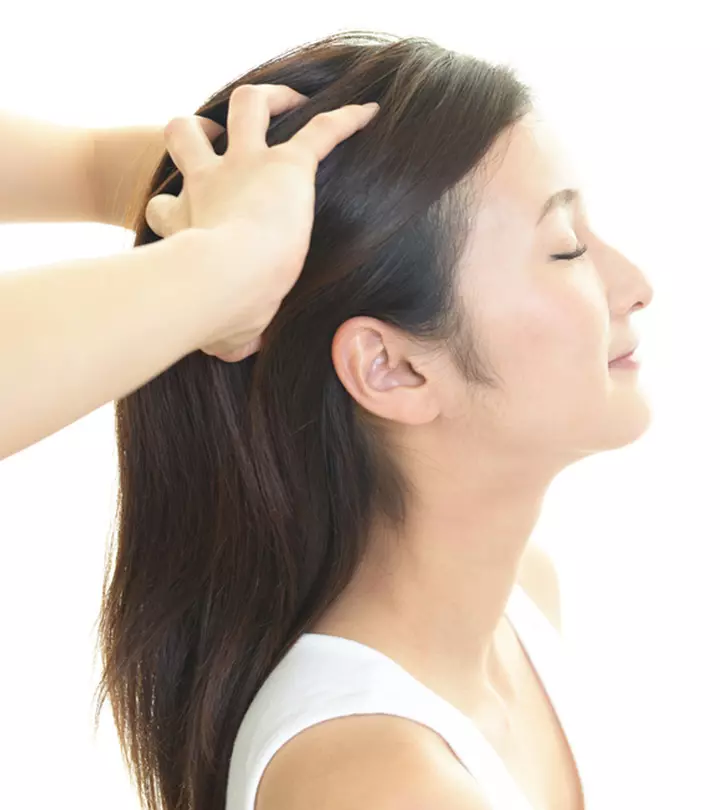
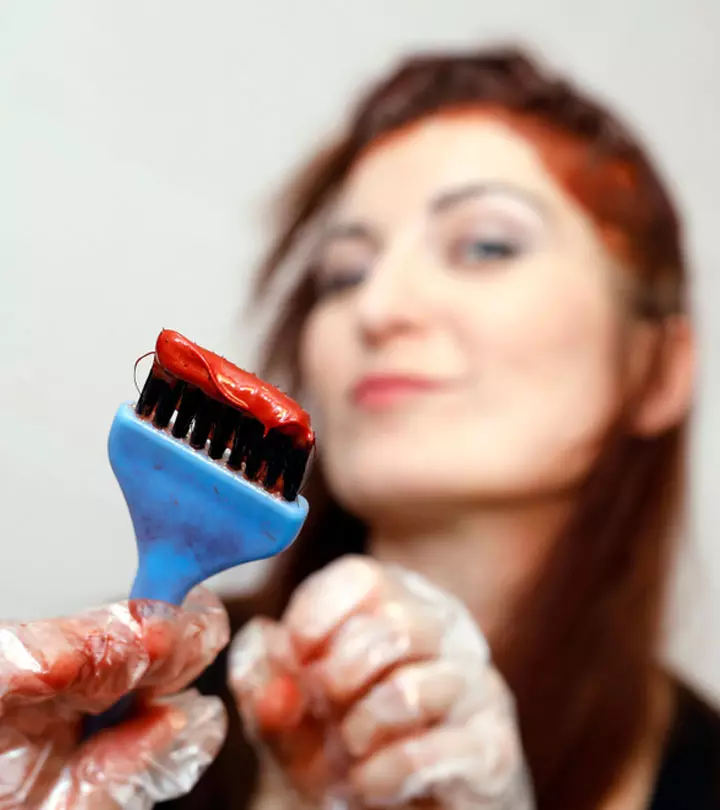

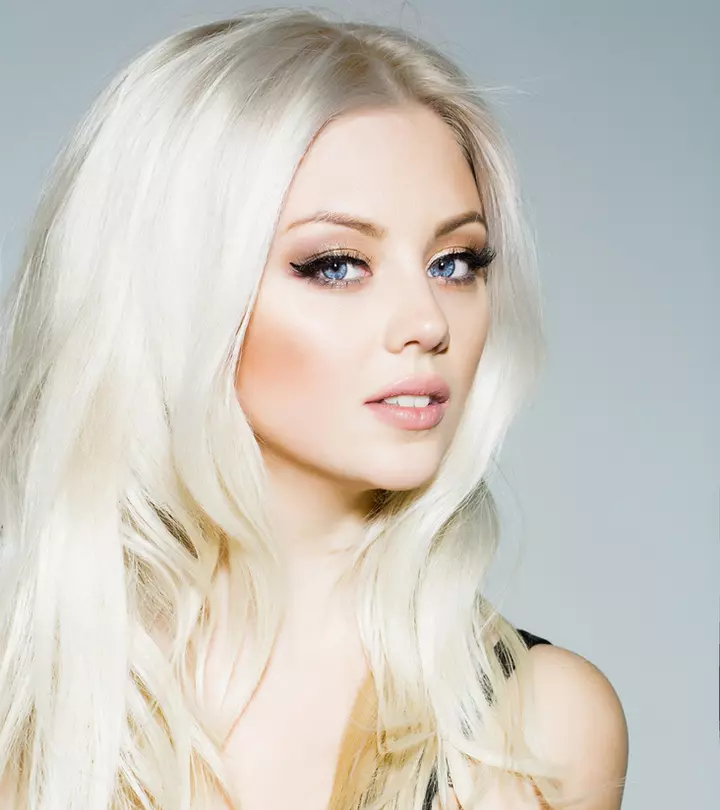
Community Experiences
Join the conversation and become a part of our empowering community! Share your stories, experiences, and insights to connect with other beauty, lifestyle, and health enthusiasts.